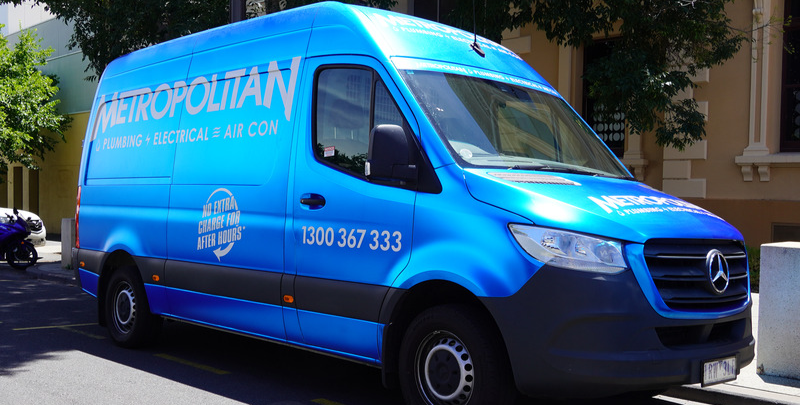
Air Conditioning Replacement: 5 Signs You Need a New Unit
Air conditioning has indeed become a staple of our typical Australian home. We depend on our air conditioning units to keep us cool during those scorching summer months. However, just like every appliance in your home, your air conditioner has a limited lifespan.
At some point, you might find yourself grappling with the question of whether to persist with costly repairs or opt for an air conditioning replacement.
In this blog post, we’ll discuss five signs that suggest it’s time for a new air conditioning unit, be it a split system air conditioner, a ducted air conditioning system, or other types. We’ll highlight the importance of recognising the moment to upgrade your old air conditioning unit to a newer, more energy-efficient model.
Sign #1: Your Air Conditioning Unit is Past Its Average Lifespan
Before diving into any complex diagnostics, let’s start with a straightforward factor – your air conditioner’s age. If your air conditioning system is over 15 years old, then experts would advise considering an air conditioner replacement. The reason is, the average lifespan of most air conditioning units ranges from 10 to 15 years.
While the idea of replacing your air conditioner might be daunting, you stand to benefit from the advances in technology, energy efficiency, and smart features that newer models of air conditioners or split systems have to offer.
Sign #2: Your Electricity Bills are Skyrocketing
Have you noticed a sudden increase in your electricity bills? If your energy bills are climbing higher and higher each month, it might be an indication that your air conditioner is working harder than it should to reach the desired temperature.
The truth is, as air conditioners age, they lose their efficiency. Despite regular maintenance, energy efficiency is reduced, leading to higher running costs. In turn, the increase in average running costs ends up mirrored in your energy bills.
Choosing an air conditioning replacement can save money in the long run as modern air conditioning units are designed to be more energy efficient, which means they consume less power to cool the whole house.
Sign #3: Your Air Conditioning Unit Requires Frequent Repairs
If you’re continually calling professionals for split system air or AC unit repairs, it’s another alarm bell for an air conditioning replacement. Just tally up your expenses on repair costs, replacement costs, installation costs, and the continual running costs. If it totals more than half the cost of a new air conditioning unit, then replacing your air conditioner is the right solution.
Old air conditioners might need replacing parts frequently – from wall mounting brackets to indoor units. Costly repairs might also be needed for outdoor units, not to mention repair costs for the entire electrical system.
Upgrading to a brand-new unit could save you from frequent and expensive repairs. You could also avoid wasting money in the middle of the summer season when the temperature is uncomfortably high.
Sign #4: Your Air Conditioner is Leaking or Making Odd Noises
Excessive noise or water leakage is anything but normal for air conditioning systems, including your ducted system, split system, or split system air unit. If your air conditioning unit is leaking or creating odd noises, it’s a clear cry for an air conditioner replacement.
Even after repair, there could be fundamental issues with the indoor unit or outdoor unit that could result in potential hefty repair costs. In this case, it would be cost-effective to consider installing a new air conditioner altogether.
Sign #5: Your Air Conditioning Unit Doesn’t Cool Or Heat Evenly
If you’ve noticed that certain rooms in your home are too cold while others are too hot—or that your air conditioner no longer cools or heats your room as it used to—it may signal that it’s time for an air conditioning replacement. Inefficient cooling or heating points towards a problem with the air distribution, which is key in both split system air and ducted air conditioning systems.
Inconsistent temperatures can result from several issues in old air conditioning units, such as compressor problems or low refrigerant levels. For peace of mind and long-term savings, consider replacing your air conditioner instead of dealing with frequent or uncomfortable temperature shifts.
Installing Your Replacement Air Conditioner
You’ve now spotted the signs and decided it’s time to replace your old air conditioner with a new one, but what next? Remember, replacing your air conditioner is not a do-it-yourself job!
Hire a professional to assess your current unit and provide a free quote for an air conditioning replacement. It might seem like the installation cost is high, but a proper installation is crucial. It ensures that the new unit, be it a split system, split system air unit, or ducted system, performs efficiently and upholds its manufacturer’s estimated average lifespan.
Think about the installation as an investment in the comfort and well-being of your whole house.
Why You Can’t Ignore the Signs
Just like any household appliance, air conditioners have a life expectancy. Neglecting to replace an old, inefficient air conditioner could lead to various issues that may affect your comfort, wallet, and the environment.
To prevent these problems, it’s crucial to understand what could occur if you fail to replace your air conditioner when needed.
-
Reduced Comfort
If you fail to replace your old air conditioner, it may not be able to provide the same level of comfort that it did when it was new. As a result, you could experience inconsistent temperatures, increased humidity, and poor air circulation in your home.
-
Frequent Breakdowns
Ignoring the need for air conditioner replacement can lead to frequent and frustrating breakdowns. These breakdowns can cause discomfort and inconvenience, especially during hot summer days when you need your air conditioner the most.
-
Higher Energy Consumption
An old air conditioner may not operate as efficiently as a new one, leading to higher energy bills. Continuing to use an outdated and worn-out unit will result in higher energy consumption compared to investing in a new, energy-efficient system.
-
Increased Repair Costs
Continuing to use an old air conditioner that needs replacement can rack up expenses in repair costs. The money spent on these repairs could be better utilised by investing in a new, more reliable system.
-
Poor Indoor Air Quality
Failing to replace an old air conditioner can result in poor indoor air quality due to worn-out filters, damaged coils, or other issues. This could lead to warm air as well as increased allergens, pollutants, and irritants, negatively affecting your family’s health and comfort.
-
Environmental Impact
Older air conditioners may use refrigerant that is harmful to the environment. If you fail to replace your old unit, you could be contributing to ozone depletion and increased greenhouse gas emissions.
To avoid these issues, it’s important to recognise when it’s time to replace your air conditioner. Investing in a new unit will not only improve the comfort of your home but also save you money on energy bills and protect the environment.
Maintaining Your Air Conditioner
Aside from the visible signs, it’s also important to consider the lifespan of your air conditioner. As a rule of thumb, the typical lifespan of an air conditioner is about 15 to 20 years. However, it could last longer with proper care or fail sooner if it’s not well-maintained. So, look after your air conditioner, and it should serve you well for many years.
Here are some TLC tips for your air conditioner to last a long time:
-
Keep the Filters Clean
Firstly, make sure to clean or replace your air conditioner’s filters regularly. Dirty filters can block normal airflow and reduce system efficiency significantly. Having clean filters will let cooler air flow more easily throughout your home.
-
Adjust Your Thermostat
Be mindful of your thermostat settings. Adjusting your thermostat to lower temperatures than outside won’t speed up the cooling process. It can only strain your unit and escalate energy consumption. Aim for a comfortable temperature that doesn’t overload the system.
-
Use the Timer Function
Your air conditioner doesn’t need to be running 24/7. Most modern air conditioners come equipped with timer functions. Utilising this function can help manage the system’s operation to function more efficiently when necessary and pause when the set temperature is achieved.
-
Give Your Unit Some Clear Space
Your outdoor air conditioning unit should have plenty of space around it to allow for proper airflow. Leaves, plants, or other debris can block and limit the efficiency of your unit. Clear such obstructions and ensure it is an unrestricted flow of air around it.
-
Maintain the Coil and Coil Fins
The air conditioner’s coil and coil fins can gather dust and dirt over time, which can contribute to inefficiency. Clean the coil and fins regularly to maintain your unit’s effectiveness. But be gentle as the fins can easily bend or break.
-
Check Your Unit’s Drains
Your unit’s drains should be clear of clogs so it can decrease humidity, thereby cooling the room faster. Occasionally pass a stiff wire through the unit’s drain channels to ensure they are not obstructed.
-
Install Window Panels and Reflective Material
Installing insulating panels around windows and putting reflective material on windows that get the most heat (usually those facing the sun) can help reduce the load on your air conditioner. The less heat entering your home, the less your air conditioner will have to work.
-
Consider Using Ceiling or Other Fans
This may sound pretty simple but using fans can help circulate air efficiently and allow for a higher thermostat setting. They use less electricity and can cool the room effectively.
-
Regularly Schedule Professional Servicing
Despite doing these maintenance tasks, it’s still recommended to call in a professional technician to perform regular check-ups. They can do a more thorough cleaning and check other parts for potential problems. Regular professional servicing can prolong the life of your air conditioner.
-
Replace Old Air Conditioners
Older air conditioners might not be as efficient as the newer models on the market today. If maintaining your current air conditioner becomes more costly, a replacement could be a more cost-effective and energy-efficient solution.
Maintaining the quality of your air conditioner isn’t just about the unit itself. It also involves being aware of your living space and how you manage temperature controls. A well-maintained air conditioner equals a cooler and more comfortable home.
Keeping It Cool
Deciding on an air conditioner replacement is a significant decision, both in terms of cost and the comfort of your home. Ensuring you have efficient and effective air conditioning is critical in our Australian climate.
Look out for these signs and use them as guidelines to assist you in making the best choice for your home and your wallet. A new air conditioning system could mean a comfortable home, a reduction in electricity bills, and fewer worries.
Remember to always research and seek quotes from several providers to get the best price on new units. And don’t forget, when it’s time for installation, leave it to the professionals for safe and efficient work! Your comfort and satisfaction are well worth the investment.
Please note: This information is provided for advice purposes only. Regulations differ from state to state, so please consult your local authorities or an industry professional before proceeding with any work. See our Terms & Conditions here.
Published: 2024-01-02

































